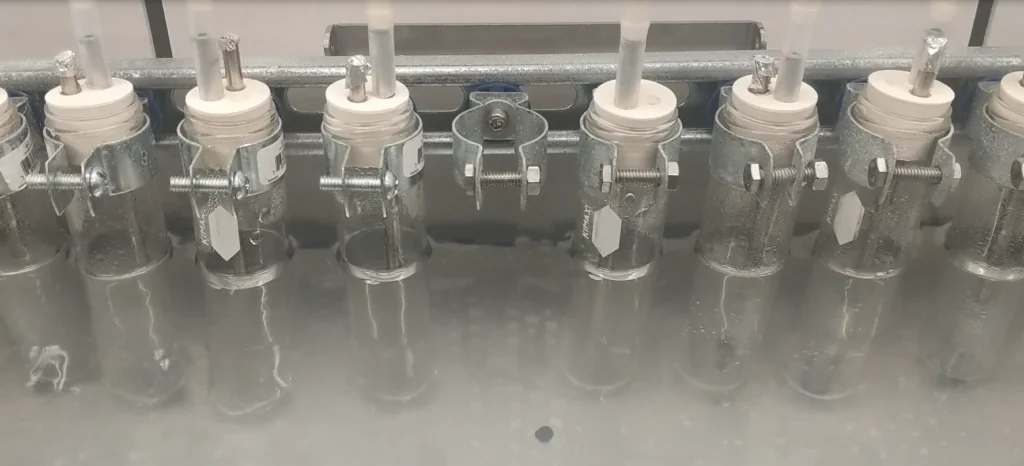
Researchers at the Agile BioFoundry and the University of North Texas are working on engineering bacteria to convert biogas into useful products while mitigating greenhouse gas emissions.
Biogas is a mixture of methane and carbon dioxide that is emitted from landfills and anaerobic digestion. Biogas typically either goes unused, is burned for energy, or is released back into the atmosphere, contributing to the rise in greenhouse gasses.
One solution to making use of biogas is utilizing methanotrophic bacteria (methanotrophs), which have the ability to use methane as an energy source. Methanotrophs can therefore be used to convert biogas into biofuels and bioproducts, and prevent the release of greenhouse gases into the atmosphere.
However, there is a lack of genetic tools and metabolic models to guide the engineering of methanotrophs for biomanufacturing. Calvin Henard, a professor at the University of North Texas, has developed basic genetic tools for engineering methanotrophs throughout his research in this area, but has noticed the need for more advanced tools that will enable high-throughput engineering.
Together with the Agile BioFoundry, Henard’s lab is working on developing high-throughput genetic tools and a predictive metabolic model to guide the engineering of methanotrophs.
Henard’s lab sought the ABF’s expertise in developing advanced genetic tools for non-model microbes and computational metabolic modeling for this project.

The teams have so far completed the sequencing and analysis of the methanotroph Methylococcus capsulatus for expanding its genetic toolbox.
“The ABF team discovered the genes used by this organism to defend itself against foreign DNA, helping to make genetic modification easier,” said ABF project lead Adam Guss.
ABF researchers have also developed carbon atom transition models to investigate how methane and carbon dioxide are incorporated.
The project’s overall goal is to develop efficient methanotrophic biocatalysts that can create renewable products from biogas while mitigating greenhouse gas emissions.
“Partnering with the ABF for the development of methanotroph genetic tools and metabolic models will significantly advance our ability to engineer these microbes for enhanced greenhouse gas capture and conversion, which will reduce costs of methane bioconversion processes,” Henard said.
This project resulted from a 2022 funding opportunity between the U.S. National Science Foundation and the U.S. Department of Energy’s Bioenergy Technologies Office.